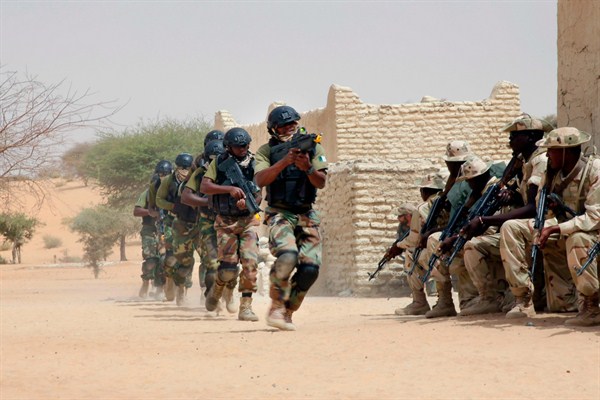Reports out of Washington suggest that the Pentagon is considering cutting U.S. counterterrorism operations in West and Central Africa, redirecting the special operations forces there to instead prepare for big wars. In one sense, this is perfectly normal—the Department of Defense constantly adjusts its posture and procedures as security threats evolve. But in this case, downsizing America’s military commitment to Africa may signal something bigger, indicating that President Donald Trump believes it is time to take his administration’s foot off the gas in the global conflict with violent jihadism.
Following the 9/11 attacks, President George W. Bush committed the United States to a “global war on terrorism.” While admitting it would take a long time, Bush contended that since the U.S. had mobilized for long wars before, it “can and will win this one.” The key to victory, though, was not simply attacking existing terrorist organizations or strengthening the U.S. against them, but transforming the conditions that led people to violent extremism in the first place. “The long-term solution for winning the War on Terror,” the Bush strategy stated, “is the advancement of freedom and human dignity through effective democracy.” Battlefield success was necessary but not sufficient for strategic success.
In the early stage of this expansive war, even during the disastrous invasion and occupation of Iraq, U.S. special operations forces were particularly important, helping bolster local security partners, gain information on extremists and, in some cases, strike terrorists directly. Because jihadists were organized into shadowy, amorphous groups that relied on guerrilla attacks and terrorism rather than conventional military methods, special forces were the right tool to counter them. But because special forces are a rare commodity, their use showed where and when the U.S. considered the jihadist threat the most pressing. That’s why the current proposals for their withdrawal from several African states—U.S. forces are currently stationed from the Sahel to the Horn of Africa—may signal broader changes in America’s counter-jihadism strategy.

